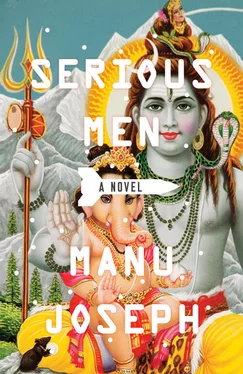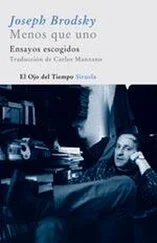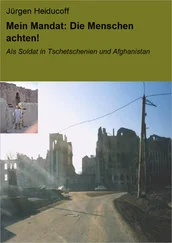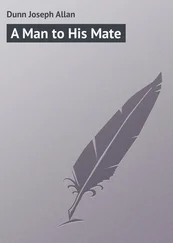The basement labyrinths, flanked by stark white walls, lay in the drone of invisible ethereal motors. At the dead end of a narrow corridor was the lab. He thought of what she must be wearing, how she must be sitting, what plans she had. In a preordained darkness, was she waiting as an unmoving silhouette? The swelling that had long subsided grew again and was now leading him down the path, like the proboscis of a foolish rover on Mars that was right now searching for water and beasts.
As the lab door approached him, the grief in his stomach grew. The wraith of Lavanya appeared. He pictured her folding clothes, with an accusatory face. He saw the distant days of their life when she used to walk like a doe. And how her long thick hair used to tickle his nose during the interminable flights over the Atlantic. And the way her head would rest on his shoulder as she slept like a child. He thought of the first beautiful months of their marriage. And their love that they never ever called love. Because it was not necessary to name it then.
He could see those days so clearly now, a whole lost age. How beautiful she had looked as a bride. He was still a student then. After their wedding in Sivagangai, when the time came for him to take her to Madras, he would always remember, a silent crowd of lachrymose relatives had shadowed them to the station. As he stood nervously waiting for the train to arrive, one of Lavanya’s aunts said, ‘Is he taking his new bride to his hostel room?’ And the weeping entourage used the ruse of tears to laugh heartily.
Lavanya, in the isolation of her new home in Madras, began writing long morose letters to her mother. He had read the first without her knowledge. ‘He wants to find out why things fall,’ she said in the letter. He was researching gravity in the Annamalai University and his wife found it ridiculous that it was a whole subject. ‘But he is a useful man,’ she wrote. ‘He can put rice sacks in the loft without standing on a stool. And he is so calm and obedient that I keep asking him to do things just for fun. I know I should respect him but I find him so funny. Yesterday, at the temple, I tried to fall at his feet; he jumped in the air. He has western ideas.’
They could never hold hands in the street because those times were different. But how much they had wanted to. Not merely for love, but to heal. In the by-lanes of Madras, shopkeepers, taxi drivers and pedestrians laughed at them mercilessly. The couple was so tall, especially for that time, and most Tamilians so tiny and genetically predisposed to believing something is wrong with the others, that Acharya and Lavanya when taken together were always a sight. Mothers with crying babies stood at the iron gates of their houses and pointed at them. That always silenced the babies. Gangs of eunuchs sang to Acharya, and they sang that if he liked Lavanya he would like them too. Urchins ran behind them screaming, ‘LIC, LIC’ (the fourteen-storeyed Life Insurance Corporation building was the tallest in the city then, and it was to remain so for many years to come).
Under the influence of an uncle whose asthmatic speech lent him a certain intensity, Acharya decided to quit his studies and join the Indian space programme that had been birthed in secrecy in a small town called Thumba in Kerala. But he soon realized how impoverished the Indian government was, and how the whole space ambition was just a pathetic attempt of a miserable nation to find respect in a world that had moved ahead. On unpaved roads that ran between tall palms, he had to carry rocket parts on a bicycle from a clandestine shed to a launch-site. Life was so simple at the time that one day Acharya even brought a rocket-cone home to show his wife. She wrote their names on it and without detection it was later fixed on a rocket, which was among the several of the first generation that failed and crashed into the sea. The simplicity of it all, and the red boiled rice of Kerala, disillusioned Acharya. After just a few months with the space programme, he went to Princeton to study cosmology, taking Lavanya with him. He would eventually become obsessed with gravitation. ‘It attracts him,’ his father would often say in a joke that relatives never fully understood.
For many years now Acharya had accepted that he had gone past the age of love. But here he was, almost at the door of Oparna Goshmaulik who could have got any man with the mere lowering of her gaze (or whatever the language was these days). He could not wait to touch her and hold so close her bare body and take in her citric smell that he had once pitied as the odour of youth. He was at the door now. His hand was on the silver knob. He waited for a moment. Then he turned back and walked away.
He took the stairway up, to the porch, went down the pathways that circumvented the main lawn, and towards the gate where the guards stood up smartly and saluted him. He crossed the road without looking and entered the Professors’ Quarters. In the lift, two senior scientists were with him. They smiled politely. He wondered if they could smell Oparna on him. And would Lavanya tell from his eyes that he had held the silver knob of a door that would have ended something between them, whatever that something was. As he walked from the lift towards his flat, he did not understand why his heart was thumping. In an importune moment of clarity he guessed that there must have been species in the prehistoric days whose hearts were so loud that they echoed in the forests, and whose blood flowed through their veins with the hush of rivulets washing over pebbles. Life then must have been a concert. But all that visceral sound would have given them away to their predators. So the species that made it through the ages were the ones whose hearts were not loud enough to hear and whose blood flowed in silence.
As he held the knob on the door of his home he thought of what Oparna was doing at that moment. Just then the door was flung open violently. Lavanya stood there with tears in her eyes and a box of tissues in her hand. ‘Where were you?’ she said.
He walked in and shut the door so that they could settle the matter in a discreet way.
‘I was trying your phone,’ she said and wiped her nose. ‘Anju is dead, Arvind.’
‘What?’ he asked.
‘Anju is dead,’ she repeated.
Lavanya’s frail shoulders shook and she began to weep. She looked incomplete, like the handless urchin he had once seen walking on a tense rope. She needed his hand around her, but he felt too dirty to touch her. He let her cry alone.
‘I just checked,’ she said, almost inaudibly, ‘There is a flight to Madras in two hours. I have to go.’
‘Do you want me to go with you?’
‘I know you don’t want to come.’
‘I will come.’
‘No. It’s all right. She was dying anyway. I am crying because it seems right to cry. I am OK otherwise.’
‘I will go with you.’
‘Actually, I want to go alone. It’s like a holiday for me.’
‘Holiday?’
‘Yes. I am such a sick woman.’
They took a taxi to the airport because Lavanya said he should not drive in the rains, and the black-and-yellow taxi was anyway the same ancient Fiat they had. He had insisted on driving but, as always in these matters, she prevailed.
‘You don’t know this, but you cannot see very well,’ she told him, when they had squeezed themselves into the back seat.
‘I can see very well,’ he said.
‘I will be thinking in the plane how you are going to get back. Today I feel everybody around me is going to die.’
‘When are you back?’
‘Ten days,’ she said, ‘Maybe more. There will be ceremonies. And I want a break.’
‘From what?’
‘From you,’ she said.
The windows of the taxi were rolled up because of the rains. It was hot inside and there was the smell of damp cotton.
Читать дальше












